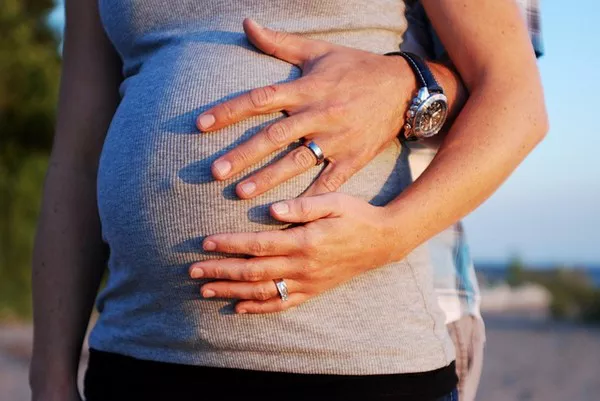A study conducted by researchers at the National Institutes of Health (NIH) suggests that excessive weight gain during the first trimester of pregnancy may contribute to excess fat distribution in fetuses, particularly in the upper arm and abdominal areas. This research, which may help shape strategies to prevent early life obesity, was published in the American Journal of Clinical Nutrition.
The study, led by scientists from NIH’s Eunice Kennedy Shriver National Institute of Child Health and Human Development, analyzed data from a previous investigation involving over 2,600 singleton pregnancies. The data included maternal weight measurements before and during pregnancy, as well as multiple three-dimensional (3D) ultrasound scans taken throughout the pregnancy.
The researchers found that pregnant individuals who gained more than 2 kilograms (approximately 4.4 pounds) in the first trimester had fetuses with significantly larger abdominal circumferences and increased abdominal fat, as well as thicker arm fat, when compared to those who experienced normal weight gain.
Notably, the fetuses of those who gained excessive weight in the first trimester continued to show greater arm fat thickness and abdominal size throughout the remainder of the pregnancy, even when their weight gain in the second and third trimesters was within normal limits. This contrasts with most previous studies, which have focused solely on total weight gain during pregnancy and its correlation with birthweight, without examining fetal fat distribution during gestation.
The study’s authors concluded that the timing of weight gain, particularly in the early stages of pregnancy, may be more crucial than total weight gain in influencing fetal fat development. This finding highlights the importance of early weight management in reducing the risk of obesity-related health issues, such as heart disease and diabetes, later in life.
You Might Be Interested In:
-
Study Identifies Unique Brain Network Linked to Schizophrenia-Related Brain Atrophy
-
Hormonal Shifts in Menopause Redefine Women’s Microbiome and Risks
-
Preconception Air Pollution Exposure Linked to Increased Child BMI, Study Finds

